Rewriting Taiwanese Literary History/Recontexualizing the History of Female Fiction Sponsored by the Chiang Ching-kuo Foundation, the Council of Cultural Affairs, and the Ministry of Education, the international conference on the "Rewriting Taiwanese Literary History/Recontexualizing the History of Female Fiction" was convened in the only landlocked county of Nantou in Taiwan earlier this year. A sum of seventeen presenters and discussants, including overseas scholars Huang Ying-che (Aichi University), Yvonne Sung-sheng Chang (University of Texas-Austin), and Michael Berry (University of California Santa Barbara), gathered on the scenic campus of the Jinan University on May 27th and 28th. After a cordial welcome by Ng Kim Chew (Jinan University), the conference began with Tee Kim Tong's (Sun Yat-sen University) theoretical inquiry into the linguistic formation and configuration of Taiwanese literature. Over the next two days, participants discussed a wide spectrum of topics that span from one turn of the 20th century to another, from issues of expatriate literati to propagandistic writers, from (post)coloniality to (post)modernity, and from poetry, fiction, to films. The two-day conference successfully generated a series of constructive dialogues between the audience and presenters that call into question as well as expand our current understanding of and theories on Taiwanese literature in plural terms of gender, geography, historiography, and sociology. With her final comment on the refreshing atmosphere and the idyllic surroundings of the Jinan University, Chiu Kuei-fen (Tsing-hua University) concluded the well-attended conference on a positive note. "Traveling Chinese Literatures and World Imaginations" Conference Brings Junior Scholars from Around the World to Suzhou From June 18-20, 2005, the Third International Junior Scholars' Conference on Sinology was held at Soochow University in Suzhou, China. The three-day conference brought together young scholars from twenty-two universities in nine countries and regions to discuss "Traveling Chinese Literatures and World Imaginations" in a city known as one of China's "earthly paradises." Now in its third year, the CCK-sponsored event is the only large-scale international conference on Chinese literature that uses Chinese as its working language and is geared towards scholars at early stages in their careers. This year saw thirty papers delve into the "dynamics of travel" in Chinese literature, extending beyond travel literature to issues of diaspora and dissemination, translation and cultural production, and world imaginary. Participants delivered papers to an overflow audience on topics ranging from images of immortal realms in Six Dynasties landscape poetry and colonial museology in Sato Haruo's Taiwan travelogues to Lin Shu's translations in the contexts of nationalistic discourse and the late Qing publishing industry, the blurring of the epic and the mythic in accounts of the Long March, and imagined heterotopias in Qu Qiubai's travel writing. Presenters also benefited from the feedback of an all-star cast of panel chairs and discussants, including Soochow University's Fan Boqun and Beijing University's Chen Pingyuan. David Der-wei Wang chaired a round table discussion featuring many of these senior scholars, including celebrated author-professor Wang Anyi and professors Fan Boqun, Chen Sihe, Mei Chia-ling, Michelle Yeh, Huang Yingzhe, and Sung-sheng Yvonne Chang. Conference participants were also treated to an evening tanci performance and a day trip to the ancient water town of Tongli. The event was coordinated by the Department of East Asian Languages and Cultures, Columbia University and the Department of Chinese, Suzhou University in collaboration with the Chiang Ching-Kuo Foundation for Chinese Cultural and Institutional History and the Department of East Asian Languages and Civilizations, Harvard University. A published volume of selected conference papers will be forthcoming from Jiangsu Education Press. Chinese Literature: Conversations between Tradition and Modernity In order to promote dialogue between scholars of traditional and modern Chinese literature, and to strengthen exchange within the international scholarly community, the Department of Chinese at Nanjing University and the Association of Chinese and Comparative Literature (ACCL) held the 2005 ACCL Biennial Conference, titled "Chinese Literature: Conversations between Tradition and Modernity," at Nanjing University from June 23rd to June 26th. This project has received kind support from the Chiang Ching-kuo Center at Columbia University. The conference Organizers are Qian Nanxiu (Rice University) & Zhang Hongsheng (Nanjing Univeristy)
Eighty scholars, coming from America, Asia, Australia, and Europe, presented seventy-six papers. Topics include: 1) The modern significance of traditional Chinese literature 2) Traditional elements in modern Chinese literature 3) Ming-Qing literature as a transitional genre 4) Conceptualization of women's space in Chinese literature, past and present 5) Chinese literature and conceptions [or constructions] of "Chinese culture" 6) Literary translation and the conceptualization of the nation-state 7) Asian Literature written in Chinese 8) Literary theory and classical Chinese literature At the final session, each of the six world-renowned scholars offered general remarks on several central issues: Chen Pingyuan (Peking University) on the making of knowledge and the education of literature at the turn of the twentieth century; Michel Hockx (London University) on modern poetics in reference to China's poetic tradition; David Wang (Harvard University) on repressed modernity in near modern China and its operation in politics and literature. Michelle Yeh (University of California) on the origin of theoretic impact on the study of literature; Zhang Peihen (Fudan University) on the transformation of traditional and modern literature; and Zhou Xunchu (Nanjing University), using his own experience, on the gain and loss of the application of Western theories (Marxism included) to the study of Chinese literature. This was about the first large-scale conference that intended to break the long-standing divide between "traditional" and "modern" in the study of Chinese literature. It brought scholars from both sides---the relatively textual study-rooted classicists and the theory-analysis oriented modernists---as well as scholars within and without China, into face-to-face conversations. As anticipated, the conference invoked more questions than solutions. One thing is sure, however, that scholars have increasingly recognized the importance to dismantle or at least interrogate artificial dichotomies between "tradition" and "modernity," or between "China" and "the West," viewing Chinese literature as a self-sufficient continuity. Comments are closed.
|
Archives
September 2020
Categories |

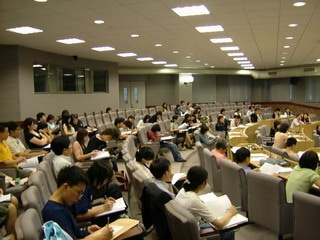
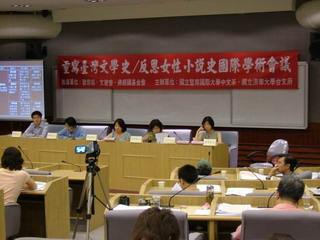
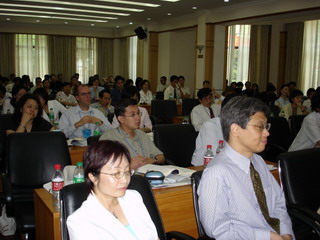
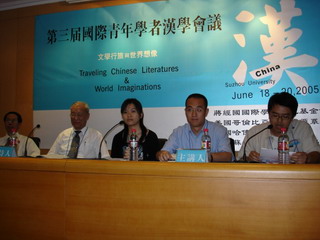
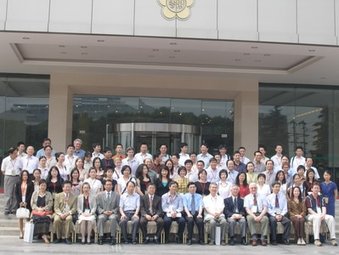
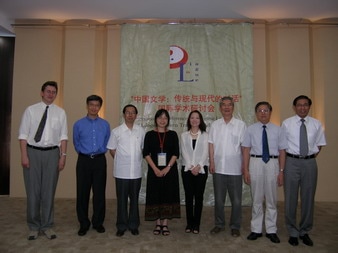
 RSS Feed
RSS Feed